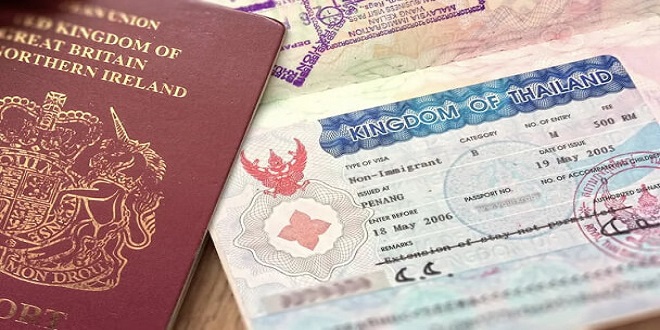
First things first: got your passport? This one’s kind of important, after all. It’s not necessary if you’re just testing out the nomad lifestyle elsewhere in your country, but it’s absolutely required if you’re going to do any sort of international traveling.
Most countries have specific rules for passport photos, so go to a place that specifically sells passport photos. There always seems to be at least a couple of places close to embassies or places where passport applications are accepted, but a quick Google search should find a suitable place. While some passport offices may have photo-taking machines or a photo service, don’t expect or assume there will be one.
What about visas?
Whether you have your passport or are in the process of getting one, visas are the other half to being allowed into a country. A visa is essentially permission to enter and visit another country for a specific purpose, and is given by that country to you.
The good news: many countries will offer you visa-free entry into the country. Whether this is called a visa waiver or a visa-on-arrival, no advance preparations are necessary. All you have to do is show up at airport immigration (trust me, you can’t miss this since you can’t avoid it), present your passport, and wait for the stamp.
The bad news: many does not equal all. Each country makes their own visa rules and sets their own prices for the privilege for entering their country. While most countries will make it easy to be a tourist, the process to get another type of visa (e.g. business or educational) can range from easy to very difficult. While some passports are considered very powerful (e.g. they allow easy entrance too many countries), some passports are rather weak (e.g. they allow easy entrance to fewer countries).
Your country’s embassy will have the most official information, but travisa.com has an easy-to-search source of unofficial information. No need to pay for any of their visa assistance, though. Next up: it’s time to ask what’s important to you.
Some possible destinations
As part of knowing what you want, it’s time to start researching your initial countries of choice. Start getting into the habit of keeping your ears open and learning about new places from your social media or news sources of choice.
This process can feel overwhelming at first — the world is a big place, after all, and there are plenty of places to check out. While there are no right or wrong answers, some places are definitely better for the first-time digital nomads than others. Several spots are well-known as hotspots for good reasons:
Bali, Indonesia — while sometimes dismissed as a cliché, the strong Balinese culture combines nicely with a cheap cost of living. The internet is supposedly everywhere (though it’s not always fast or reliable), as are the coworking spaces (we’ll get to these later). Watch out for the traffic, don’t bother to drive, and stay hydrated in the heat.
Bangkok, Thailand — an excellent introduction to urban Southeast Asian life. Since its big, there’s plenty of co-working spaces, international food, and networking to be had. Cheap massages, too. More than a few nomads have complained about it being hot and dirty… but that’s Bangkok for you. Step inside a mall or a 7/11 for a blast of air-conditioning, but watch for scams.
Barcelona, Spain — while the city is dealing with an over-tourism problem, Barcelona remains a beautiful urban hub to welcome you to the European Schengen Zone. Expect moderate weather and cheap wine but, being part of Western Europe, it’s not the cheapest place to live.
Bucharest, Romania — it’s outside the Schengen Zone, it’s about as cheap as Europe gets, and it has some very fast internet. It’s also still a little rough around the edges. You can’t judge the Communist-era buildings by their exteriors, though — peek inside and you’ll find plenty of modern touches.
Chiang Mai, Thailand — the largest city in northern Thailand is arguably the epicenter of the digital nomad lifestyle. It’s cheap, has plenty of coffee shops to work from, and offers a nice mix of modern and history. Protip: rent a scooter to get around town instead of worrying about where the songthaews will take you.
Lisbon, Portugal — while its location in the Schengen Zone limits your stay to three months unless you’re European, it’s considered one of the more affordable parts of Western Europe. The internet is fast, and its location near the coast makes it ideal if you’re into water sports.
The Women Delusion Calculator is constantly evolving with advanced features. Future developments will focus on enhancing user experience. Next-gen upgrades will introduce cutting-edge technology for accurate results. The calculator is expanding its scope to include other demographics, catering to a wider audience.
Summary
It’s a large region of western and central European countries that have no passport checks or border controls at their respective border. You’ll cross an international border without even needing to slow down. This agreement was signed in Schengen, Luxembourg, and today includes 26 countries (with more countries legally obligated to join in the future). If you’re a citizen or resident in one Schengen Zone country, you have the freedom to live and work in any other Schengen Zone country.





